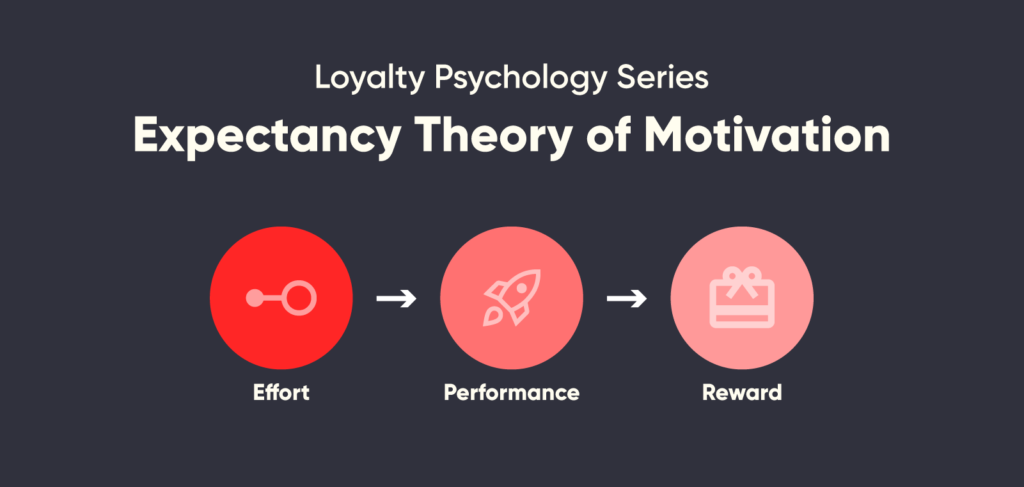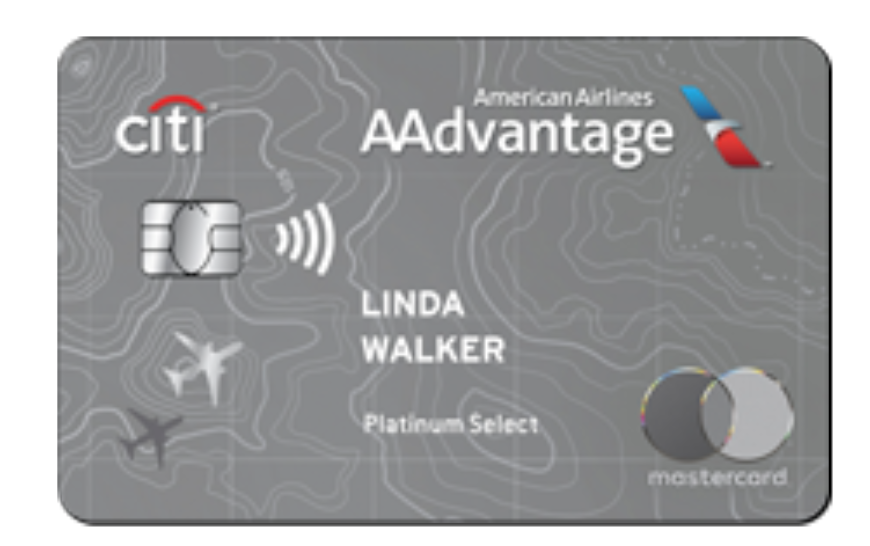
As loyalty consultants, we understand the importance of incorporating loyalty psychology into a loyalty program strategy as a way to influence customer behaviour. Expectancy theory of motivation (Vroom, 1964)[i] is an example of a loyalty psychology theory which proposes that people are motivated to behave because they believe their actions will lead to their desired outcome. This can provide brands with a foundation on which to build a better understanding of ways to motivate members to engage in order to enhance their loyalty program strategy.
The theory states that individuals will be motivated if they believe that there is a positive correlation between efforts and performance, and that favourable performance will result in a desirable reward. This makes the desire to satisfy the need strong enough to make the effort worthwhile.
Vroom outlined three core variables in his theory; expectancy, instrumentality and valence.

Figure 6: three components of expectancy theory by V.H Vroom, 1964. Reprinted from iEdunote [ii]with permission.
Expectancy involves the belief that increases in effort leads to increases in performance. Instrumentality involves the belief that an appropriate reward will be received for the right performance. Valence is the importance a person places on the outcome that is expected.
Expectancy Theory of Motivation in loyalty programs
A member will be motivated to engage with a loyalty program if they have the expectancy that their efforts will move them forward on a pathway towards accessing a reward (instrumentality) that satisfies an important need (valence).
For loyalty program strategy, expectancy theory is a useful tool for empathising with the members point of view. Focusing on the three core areas critical for motivation can help to clarify important and non-essential features, supporting the development of a simple yet sophisticated design. It is equally valuable when auditing existing programs, by directing the attention of the program operator to deficient aspects of the program which either blocks motivation, or doesn’t motivate sufficiently.
Sharma and Verma’s motivational factors
Sharma and Verma (2014) [iii]examined the application of motivation theory to influence a consumer’s intention to enrol in a loyalty program. They identified several motivational factors relevant to loyalty program design:
- How near the goal is from joining, which is positively related to intent to enrol in a rewards program.
- How much work will be required to achieve the goal, which is negatively related to intent to enrol.
- How much the member values the reward, which is positively related to intent to enrol.
- Resistance to attempts to control behaviour or limit freedom of choice, which is negatively related to the intent to enrol.
Sharma and Verma argued a balance between all four factors is needed for a loyalty program to be successful, noting that their research suggested reward valence has the strongest positive effect and perceived effort has the strongest negative effect.
Examples
The Expectancy Theory of Motivation can be an effective tool to influence member behaviour if done correctly. See below for an example of where this has been executed well, and where it has missed the mark.
Delta Airlines Skymiles

In 2004, Delta Airlines revamped their Skymiles program after identifying they were rewarding members who were not even covering the costs of delivering the transportation. They readjusted the Goal Proximity for discount economy passengers by providing only one quarter of the mileage reward that was being given to higher paying members. This adjustment ensured they stopped rewarding members for behaviour that was detrimental to the company’s goal of profitability and instead rewarded those members which increased revenue and profits.
Citibank

Citibank launched a credit card where members could earn American Airlines AAdvantage miles. To boost enrolments, Citibank offered 10,000 free miles just for opening a new account (equivalent to US$10,000 in purchases). Detrimentally, a significant percentage of customers signed up for the card, earned the free miles, and defected to the next deal being offered from a similar bank. This is an example of members being enticed by too high a level of reward valence and too low a level of perceived effort, with the unfortunate outcome being no measurable loyalty.
Looking to step up your loyalty program strategy?
Our loyalty consultants have extensive experience in helping global brands take the critical steps to design effective loyalty programs, as well as support ongoing evolution to meet changing business and consumer expectations. Contact us to learn more about our comprehensive loyalty services and talk with our loyalty consultants to understand how you can maximise your brand’s loyalty program strategy.
[i] Vroom, V.H., 1964, ‘Work and motivation’, New York: Wiley.
[ii] iEdunote, ‘Expectancy Theory of Motivation’, https://www.iedunote.com/expentancey-theory, accessed 16 July 2020.
[iii] Sharma, D. & Verma, V., 2014, ‘Psychological and economic considerations of rewards programs’, Journal of Retailing and Consumer Services, Vol 21, Iss 6, pp924-932.

